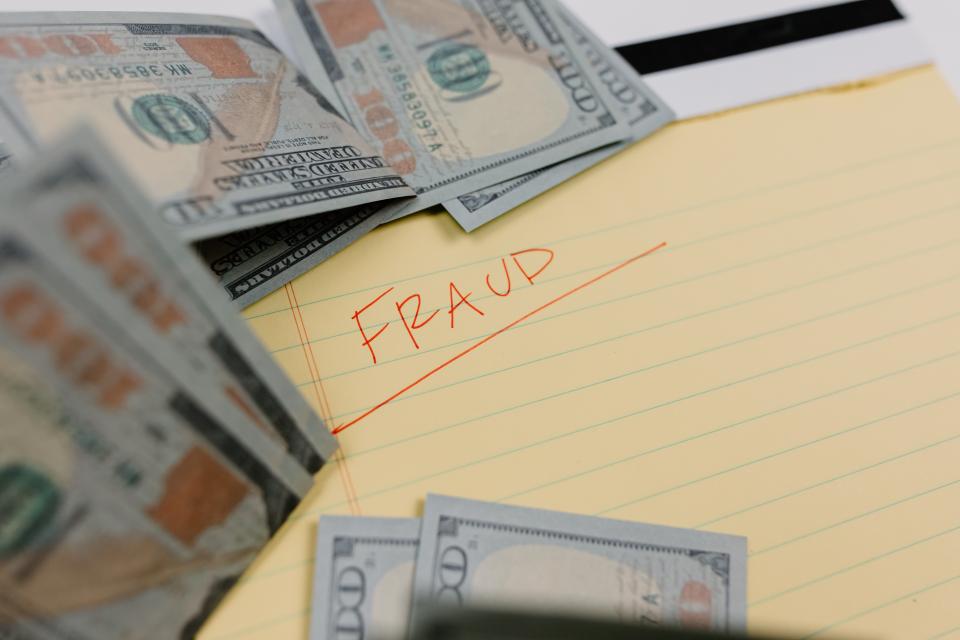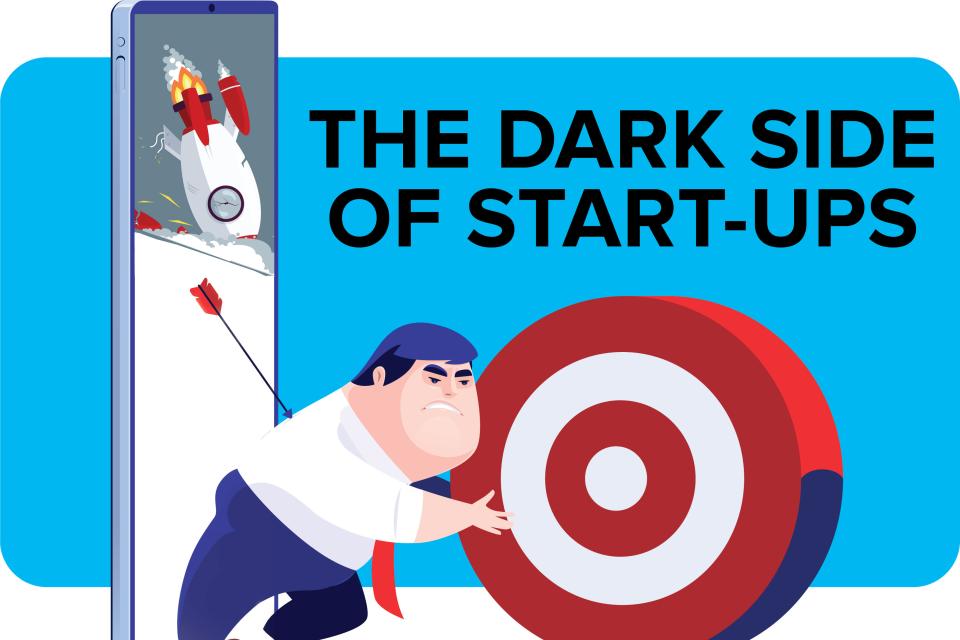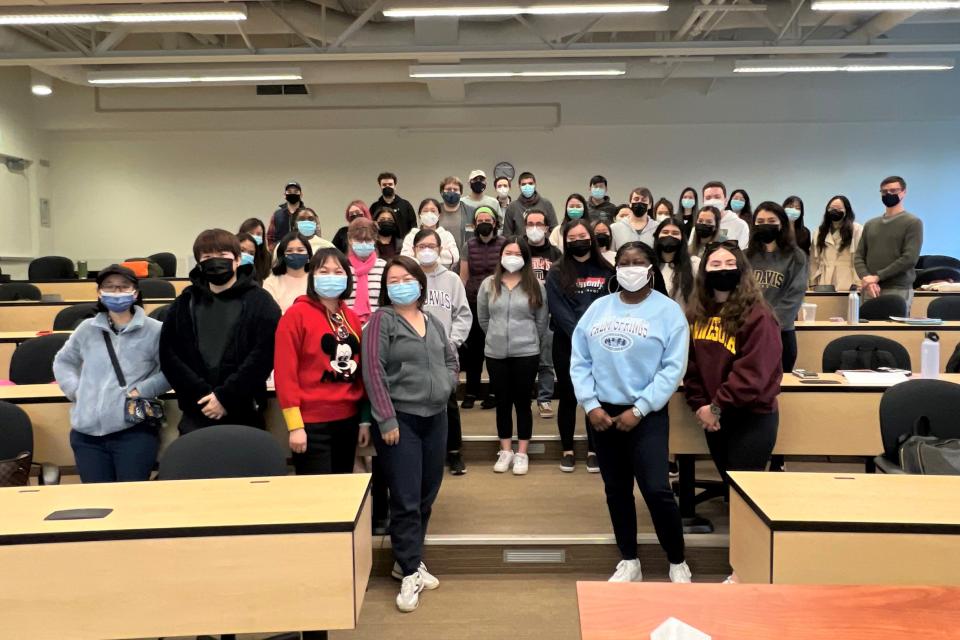How to Protect Your Career from a Fraud Scheme
Tips for empowering people at any level of an organization so they don't succumb to a fraud scheme

With great knowledge comes greater responsibility.
As a lecturer on accounting ethics, this is an underlying message I impart on all my students at the Graduate School of Management. Unfortunately, as scandal after scandal has shown us, an ethical mindset is becoming increasingly important in the accounting world.
High Expectations
Students at the UC Davis Graduate School of Management have the honor of attending one of the best regarded Master of Professional Accountancy programs in the nation. With that honor also comes high expectations for when they graduate and enter the business world, government service, professional service firms or other opportunities.
The Soft Side of Accounting
When it comes to becoming a CPA, you may not expect to address “soft issues” such as professional judgment, conflicts of interest or maintaining your integrity. The “soft issues” extend beyond learning ethical standards to include listening carefully what people are telling you, practicing interviewing skills, and, finally, developing a sixth sense to the work you undertake.
When you transition from an educational environment to a new role, new graduates are faced with a myriad of new problems and concepts and there will also be an expectation that they will adhere to high ethical standards.
During my career in forensic accounting, I participated in more than 100 legal trials and cases where the stakes were high. I learned lessons from observing the “good” guys and the “bad” guys. That is why I have structured my courses at UC Davis in a way that students not only know the subject material, but also are prepared to make those tough decisions when the time comes, as it inevitably will—trust me.
Fraud Schemes
Many people are familiar with Bernie Madoff’s $17-billion Ponzi scheme collapse in 2008, but there are many other lesser-known Ponzi schemes that you may not have heard of such as Petters ($3.6 billion), Rothstein ($1.2 billion) and DC Solar ($1.2 billion). Those are accompanied by the recent Theranos collapse, several price-fixing and bid-rigging investigations, and many internal and external investigations involving claims of wrongful conduct.
Each one of those schemes involved several persons, both on the inside and the outside of the organization, including professionals—just like you will become—who found themselves involved in inappropriate conduct.
I have a bias. I have spent 40 years as a forensic accountant investigating criminal and civil frauds and other claims of wrongful conduct. When I meet with witnesses, other than narcissists and sociopaths, there is a common theme to common their comments. They often tell me “as I look back at everything I did, it is evident that I compromised my ethics, and I should have known better.” There is a fine line between doing something wrong and a fraud. The saying “Faking it until you make it” does not work.
5 Tips to Protect Yourself from a Fraud Scheme
I want to impress upon everyone, including people who are just starting their career, that there are steps you can take to protect your reputation in your career, even when a fraud scheme may be afoot.
1. Don’t blindly trust conventional wisdom.
What may seem to be true, may not be, as you may be a victim of cognitive dissonance—a conflict that occurs when our beliefs or assumptions are contradicted by new information, i.e., you see what you want or expect to see. Challenge that assumption.
2. Challenge what you think you see
You may see evidence of what you want to expect to see that may not be true as you may be the victim of confirmation bias—new information confirms your previously existing beliefs. New information simply supports your initial assessment or the conventional wisdom that me incorrect. Challenge that assumption.
3. You cannot be heard unless you speak up
In your initial position, you may be the most junior member on the team and reluctant to speak up. As a member of a team, you may be the only person who sees things “on the ground”, interviews key persons, inspects materials, or examines evidence that no one else on the team may experience. Even though you may be new to the team, you may have accumulated more knowledge than the others. Speak up and be heard.
4. You are the company you keep
You will hear and learn about a corporate culture or the “tone at the top” that sounds great and reads well. If you ever have time, read the Enron Code of Conduct. There was a wide gap between what was published and what was practiced. If there is improper conduct at a company, you will always be tainted with your role there. If necessary, leave any company that does not practice what they profess to be an appropriate culture.
5. Questions to ask yourself
Some of the ultimate questions you must ask yourself if you get into an “awkward” situation are:
- Did I have the moral courage to make the right decision to protect my reputation and my integrity
- How would my conduct look like if it were on the next media or blog headline—or viral meme?
- What would those who I respect tell me to do in a similar situation?
The above are simple rules and simple questions and there are more that could be included. Those rules and questions are intended to reinforce the defense of your reputation and your integrity as you move from a new graduate to your new role in society.
The UC Davis program goes beyond teaching the technical aspects of business and accounting. My intent is to bring the world I saw while working as a forensic accountant into the classroom to help students develop the skills to become professionals with a high standard of ethics, and to avoid mistakes that can potentially ruin their careers and damage to any number of people or clients.


